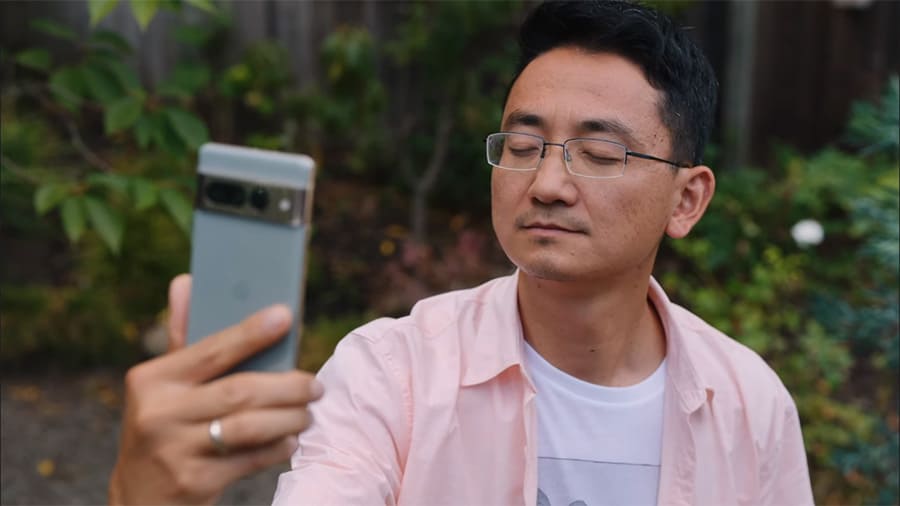Video: Google’s new smartphones help people with vision impairments take selfies easily

People with low vision or who are blind can now capture selfies more easily with a combination of precise audio guidance, high-contrast visual animations, and haptic feedback with a new smartphone feature from Google.
The inclusive selfie feature, Guided Frame, is part of Google’s new smartphone launches: Pixel 7 and Pixel Pro.
Alongside the flashy features expected in a new smartphone release, such as a clever photo unblurring mode, the devices are more accessible to people with vision impairments.
Guided Frame gives Android users clear audio instructions for taking selfies. For instance, it might tell the user to “move the phone right and slightly up” before saying that they are ready to take a selfie. Guided Frame can also countdown to take a selfie, and it lets the user know when the photo has been taken with a description “photo taken”.
The feature was designed to help disabled people feel as though they are included in the world around them. By giving visually impaired individuals the ability to easily take a selfie, the feature aims to make life more fun, expressive, and inclusive for users.
See Guided Frame in action below:
Google has committed to improving technology accessibility over the last year.
It is currently working with University of Illinois Urbana-Champaign, four other technology giants, and non-profit organisations on a project to make voice recognition technology more useful for people with a range of diverse speech patterns and disabilities.
The Speech Accessibility Project will collect speech samples from individuals representing a diversity of speech patterns. University researchers will then recruit paid volunteers to contribute recorded voice samples and will create a private, de-identified dataset that can be used to train machine learning models to better understand a wide variety of speech patterns.
Additionally, Google is building out-of-the-box support for users of braille displays so that they can navigate Android devices more easily, thanks to helpful user feedback. It is designed to make using braille displays more hassle-free, meaning that, for most users, no additional software downloads are necessary to use them.
Last year, Google launched an app called Project Relate, which is designed to enable people with speech impairments communicate more easily and helps them to be better understood by others. The app could be used to help individuals with a wide range of conditions that impact speech, including strokes, cerebral palsy, traumatic brain injury or Parkinson’s disease.

